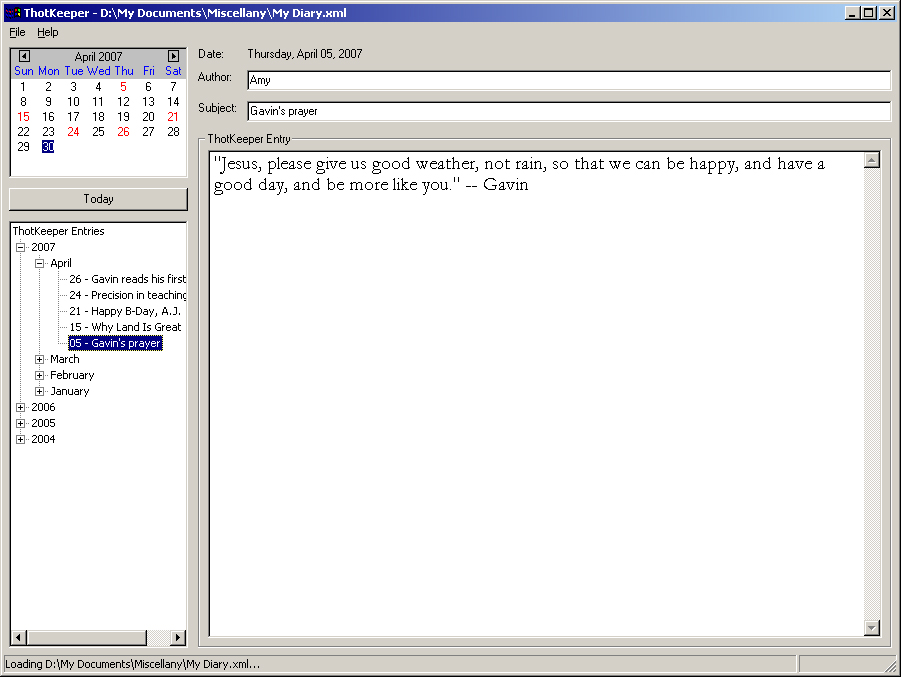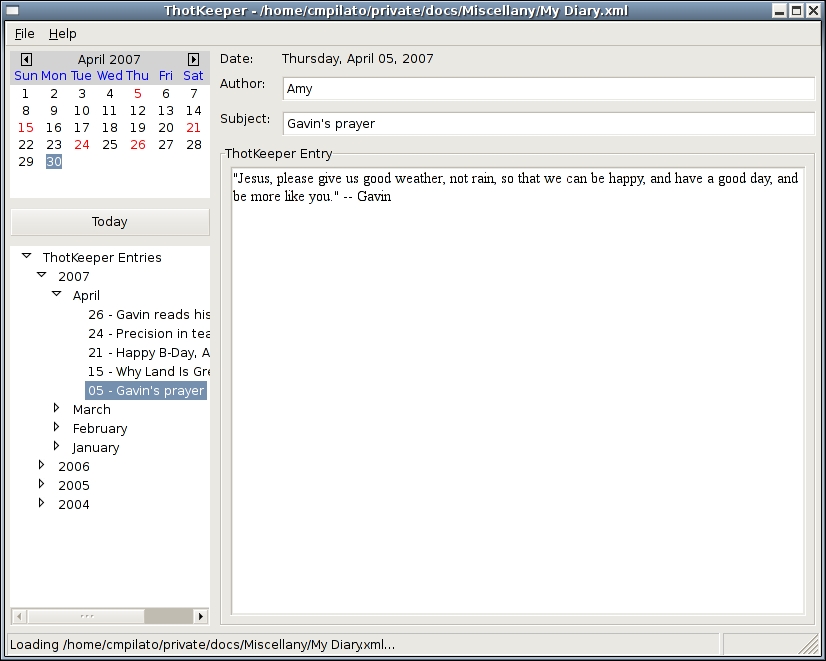ThotKeeper is a simple, open source, cross-platform, daily journal application.
ThotKeeper is written in the Python programming language and runs on many different platforms. It's built around the wxPython toolkit, which uses native widgets on the various platforms. That means that when you run ThotKeeper on a Windows machine, it looks like a native Windows application; when running under Linux, it looks like a Linux/GTK application.
- Cross-platform functionality with native widgets
- Simple, easy-to-navigate interface
- XML storage format
- Support for multiple entries per day
- Per-entry authors
- Hierarchical tag support
(These screenshots are of ThotKeeper 0.1.)
| Windows | Ubuntu Linux |
|---|---|
 |
 |
To run ThotKeeper, you need a few bits of software:
- ThotKeeper — This one's obvious, right?
- Python — the Python programming language
- wxPython — Python interfaces to the wxWidgets cross-platform GUI library
For a complete list of dependecies (required and optional) and the specific versions thereof that ThotKeeper needs, see the INSTALL.md file in the root of your ThotKeeper package.
ThotKeeper was created as a labor of love by C. Michael Pilato for his wife, Amy. Amy was recording journal entries on paper or in an endlessly growing Microsoft Word document. Each of these methods has its pros and cons, but the cons frightened Mike. Paper is charming and personal, but gets lost or damaged easily. Word documents are digital and easy to backup, but bind the user to the availability of software which parses that proprietary format. Mike figured that with a simple XML storage format and enough GUI goodness to navigate the hunks of information in the file, Amy might actually be encouraged to write more. So in 2004, he began working on ThotKeeper.
Others have since come along to help Mike develop ThotKeeper.
